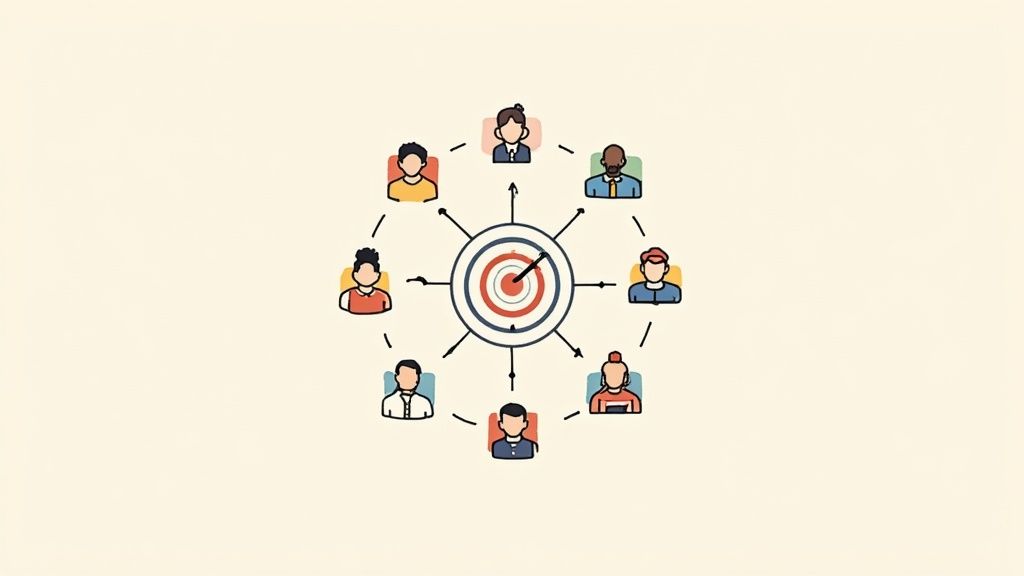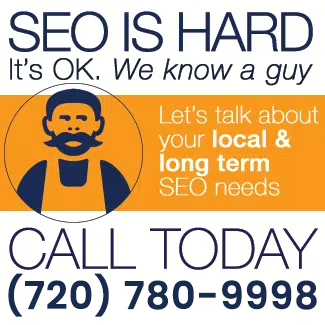Most small business owners already know they need a website. But few realize how much a well-built site can reshape their entire advertising strategy—often cutting costs while delivering more qualified leads.
At The Affordable Web Guy, we specialize in creating professional, hard-working websites for small businesses that handle the marketing for you, so you can focus on your work. Chat with us today for a free consultation and see how we make the process simple and effective.
Today, your website isn’t just an online brochure. It’s your central marketing engine, connecting every digital channel you use—Google Business Profile, social media, reviews, email, and paid ads—into one trusted hub that drives real customers, not empty clicks.
1. From Paper Ads to Search Visibility
Before the internet, local advertising meant flyers, radio, or newspaper spots. Now, over 97% of consumers search online before buying a product or hiring a service (Forbes, 2024).
If your business doesn’t show up in those searches, you’re invisible.
A well-optimized small business website gives you what old ads never could:
-
24/7 visibility on Google and Bing
-
Detailed data on who’s visiting and what they want
-
The ability to rank organically and earn long-term traffic instead of paying per click
Local SEO turns your site into an always-on ad that earns trust every day—without buying more ads.
2. Turning Clicks Into Calls and Customers
A website isn’t valuable just because it exists. It matters because it converts.
When designed correctly, your website should act like a focused sales funnel:
-
Clear message: State what you do, who you help, and how to contact you—above the fold.
-
Social proof: Add Google Reviews or testimonials to show credibility.
-
Calls-to-action: Encourage the next step—call, text, or form submission.
-
Speed and mobile optimization: Google ranks fast, mobile-friendly pages higher (Google Developers).
Each of these elements raises conversion rates and builds credibility. Clients trust a polished, active website more than a static Facebook page.
3. Local SEO: Your Competitive Edge
For Denver-area businesses, local SEO is the most cost-effective marketing investment available.
Every page on your site can signal your location and service area to Google. Use consistent NAP info (Name, Address, Phone) across your website, your Google Business Profile, and local chamber listings.
Add local signals:
-
Embed a Google Map on your contact page.
-
Mention service cities in headings (e.g., “Plumber in Aurora” or “Web Designer in Highlands Ranch”).
-
Join your local Chamber of Commerce—those listings carry strong domain authority.
Local optimization helps you appear in the Map Pack and improves organic rankings for “near me” searches.
4. Websites Outperform Social Media Alone
Social platforms are rented land. Algorithms change. Accounts get suspended.
Your website is owned land—a digital property you control completely.
Use social media to pull visitors back to your website, where you can collect leads, show pricing, and measure conversions.
A Facebook post disappears in hours. A well-optimized page can generate traffic for years.
5. Real-World Example
A Denver-area home-service company (fictionalized for privacy) once spent over $800/month on local print ads. After launching a simple five-page website optimized for local SEO, they replaced all print ads within four months.
Result: 120% increase in calls, 40% lower ad spend.
The difference wasn’t luck—it was structure. The website provided a trackable, measurable hub for every campaign.
6. DIY vs Professional Website Design
It’s tempting to build a site with a drag-and-drop tool. But DIY websites often underperform for one reason—they don’t follow SEO best practices.
Professionally built websites include:
-
Optimized image compression for speed
-
Proper schema markup for Google
-
Security certificates and hosting backups
-
Keyword mapping aligned with user intent
That’s why most small businesses see faster ROI when they partner with an experienced WordPress website designer who understands local search, not just design.
7. Measuring What Works
Data tells you what’s paying off. Connect your site to Google Analytics and Search Console to track:
-
Where traffic comes from
-
What users click
-
Which pages convert best
You’ll stop guessing and start adjusting your advertising budget based on data, not hunches.
8. Common Questions (PAA-Style FAQ)
Q: How much does a professional website cost?
Most small business sites run $1,200–$4,000, depending on pages, SEO depth, and design needs. Hosting and domain renewals are yearly and typically under $200.
See our small business website pricing guide for details.
Q: How long before a new site shows results?
For local businesses, expect visibility gains in 4–8 weeks if your Google Business Profile and citations are consistent.
Q: Can I still run paid ads?
Absolutely. A website doesn’t replace paid ads—it improves them. Landing pages boost Google Ads Quality Score, lowering your cost per click.
Q: Is blogging still worth it with AI search results?
Yes, but focus on questions real customers ask—not generic topics. Visit our small business website FAQ for examples of high-value topics that attract real search traffic.
9. Build Trust, Then Build Traffic
Google’s algorithms favor websites that demonstrate Experience, Expertise, Authoritativeness, and Trustworthiness (E-E-A-T).
Your site should reflect:
-
Real author identity (photo, name, credentials)
-
Clear business contact details
-
Client testimonials or project examples
-
Transparent pricing or process
These trust signals separate credible local businesses from thin affiliate pages.
10. Take the Next Step
A great website isn’t just a marketing expense—it’s an asset that keeps working even when you’re not.
If your current site feels dated or invisible, that’s fixable. The Affordable Web Guy builds search-optimized, conversion-ready WordPress websites for Colorado small businesses.
Schedule a Free Review or call (720) 990-0677 to find out what’s holding your site back.



Leave A Comment